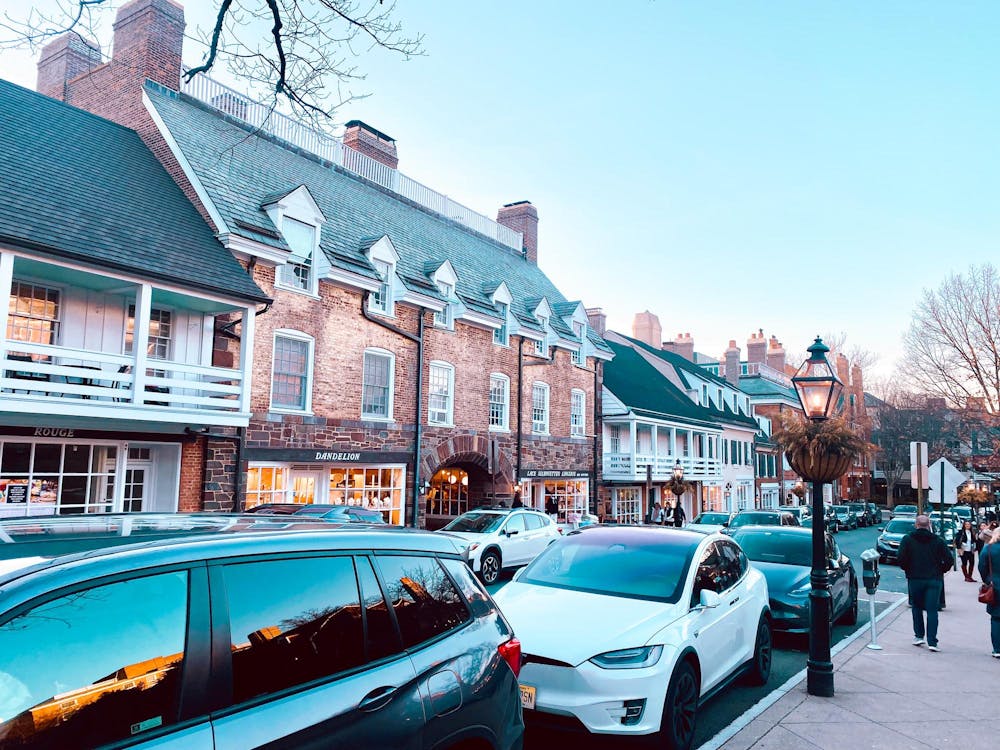A political group terming itself the Princeton Coalition of Responsible Development has drafted a petition with nearly 1,000 signatures opposing the Municipality of Princeton’s Master Plan. Princeton’s Planning Board prepared the plan, which guides the municipality’s growth and development and informs its zoning, land use decisions, and infrastructure.
Town administrators and elected officials have pushed back strongly against the claims in the petition. Louise Wilson, the chair of the Planning Board, told The Daily Princetonian in an interview that the petition is “alarmist and replete with falsehoods” and that there are parts of the plan that can be confusing or misinterpreted if taken out of context.
The petition, released on Nov. 16, claims that the changes implemented by the Master Plan will alter the “beautiful green spaces and historic charm” that make Princeton attractive to visitors. The petition also argues that property taxes in the town are too high and raising them would burden residents, that more development would exacerbate traffic, and that increasing density as the plan proposes “will do nothing for affordable housing.”
The petition comes amid concerns over the rising costs of the town and community opposition to changes in parts of the town classified as “historic districts.”
Back in October, Councilmember David Cohen wrote in an email to the ‘Prince’ that “there is a vocal minority who are scaremongering and spreading misinformation about what is in the plan.”
In a published FAQ document, the Planning Board wrote, “importantly, the proposed plan does not contain or recommend any mandate to change the character of any neighborhood; it recommends allowing more of what already exists.”
Cohen added that the petition conflates large multi-family developments being built in town with the Master Plan revisions when in reality, they are part of Princeton’s court mandated affordable housing settlement.
The petition equates the Master Plan to “unplanned development.”

Justin Lesko, the town’s planning director, wrote in an email to the ‘Prince’ that the petition’s concerns have already been expressed by Princeton residents through the multiple listening sessions held and that the Master Plan “gives a myriad of ways of addressing them through recommendations in each element in a well thought out way.”
Mike Head, a spokesperson for the Princeton Coalition for Responsible Development, told Planet Princeton that he started the group because residents felt planning board members were not listening to their complaints. “We are concerned that is a rush to approve this. There doesn't seem to be a reason why there is such a rush.”
“We believe that community involvement is crucial when making decisions that will affect us all so profoundly,” the petition reads.
Cohen pushed back against the claims in the petition, writing that “much of what we are proposing will work to mitigate, not exacerbate, the trends objectors worry about.”

Lesko wrote that the Planning Board certainly expected backlash. Lesko encouraged residents to read the plan themselves, adding that “context is lost when just reading op-eds or petitions.”
Cohen expressed that some of the backlash might be because “change is hard, and people would rather pretend that it is possible to keep Princeton just the way it is.” Wilson attributed it to the nature of Princeton’s residents: “People care deeply and love a good debate.”
Wilson noted that in response to the petition, the Planning Board is adding some explainer text, repeating parts of the existing text, to the land use map and will point out again at the public hearing on Nov. 30 at 7 p.m. that the plan does not “upzone properties to allow for increased density on each lot.” The board is also incorporating some suggested language, correcting errors — typos, errors of omission, etc. —, and accepting recommendations from the Historic Preservation Commission and an independent historian.
A steering committee with representatives of the municipality, Princeton University, Princeton public schools, small businesses, as well as residents, was formed in April 2022 to advise staff and consultants, help connect the planning process to the community and provide direct input. Beginning in early 2022, according to the FAQ document, each of Princeton’s municipal boards, commissions, and committees were consulted and encouraged to offer input into the plan.
Fifteen meetings with presentations and Q&As were held with neighborhood organizations, community groups, committees, and local merchants. Ten listening sessions were held: one online and nine in-person. The first one was held at Frist Campus Center with the goal of hearing students’ concerns.
Cohen stressed the goals for the plan, emphasizing that “change is inevitable, and if we don’t plan for the change we want, we get change that we don’t want.” He referenced the trend toward rising prices in Princeton, expressing that it is “becoming a ‘golden ghetto,’ unaffordable to all but the top five percent and the (un)lucky few who qualify for subsidized affordable housing and are selected off the long waiting list for a vacant unit.”
Cohen says he believes that the changes proposed in the plan are in line with those being proposed in municipalities across the country and are the only way to create the kind of “Missing Middle” housing needed to accommodate income diversity in Princeton.
“A healthy functioning community should be able to house all who work in and contribute to the life of the community,” Cohen notes.
Abby Leibowitz is a staff News writer for the ‘Prince.’
Please send any corrections to corrections[at]dailyprincetonian.com.








